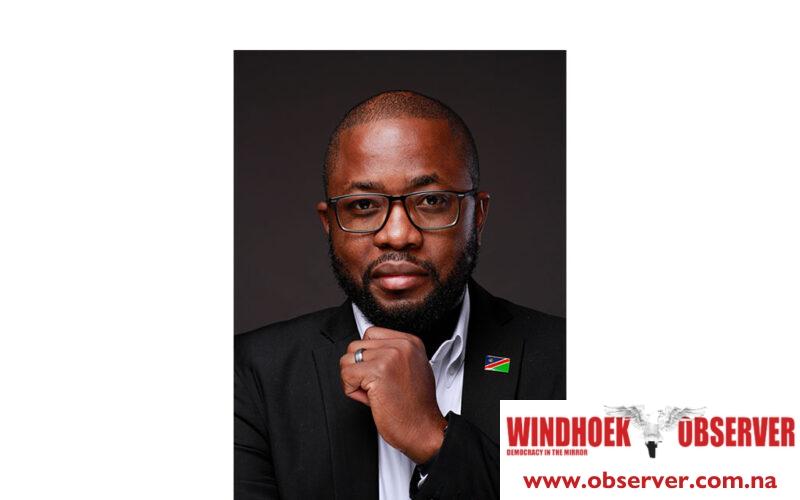Lot Ndamanomhata
History sometimes unfolds in ways that no one anticipates. When Dr. Nangolo Mbumba was sworn in as the fourth President of the Republic of Namibia on 4 February 2024, it was under circumstances no one could have foreseen. The nation was in mourning following the passing of President Hage G. Geingob, and in that moment of deep national sorrow, leadership fell upon a man who had never sought the highest office but whose service to the nation had been unwavering for decades.
Dr. Mbumba, the unassuming statesman from Olukonda, Pohadopate, became the nation’s guiding hand at a time of grief, uncertainty, and transition. He had spent his career in the background, a stalwart of Namibian politics, always supporting, always serving. Yet, fate had a different path for him. The man who had not imagined himself as President was now tasked with leading Namibia not only through its loss but also towards a smooth transition of power in one of the country’s most defining moments.
His presidency, though unexpected, has been deeply consequential. Just weeks after taking office, he led the nation through the burial of his predecessor, President Hage Geingob, at Heroes’ Acre. The weight of that duty alone was immense, as he stood before the grieving nation, offering words of unity, comfort, and continuity. But history was not done testing him. A year later, Namibia once again found itself in mourning, this time bidding farewell to the Founding President and Father of the Namibian Nation, Dr. Sam Shafiishuna Nujoma. Once again, it was Dr. Mbumba who will to lead the nation through its collective grief, standing at the forefront of yet another momentous and painful farewell.
The burden of such responsibilities would weigh heavily on anyone, yet Dr. Mbumba has shouldered them with quiet dignity and unwavering resolve. His tenure has not been about grand ambitions or sweeping policy changes. Instead, his leadership has been defined by something far more profound—stability in the face of sorrow, reassurance in times of loss, and a steadying hand guiding Namibia forward.
Dr. Mbumba’s journey to the presidency is marked by decades of dedicated service. His political career officially began in 1985 when he became Deputy Secretary for Education and Culture within SWAPO. He later served as Personal Secretary to SWAPO President Sam Nujoma before playing a crucial role in the reintegration of Walvis Bay into Namibia in 1994. His legislative and executive contributions span many years, having served in the National Assembly from 1993 until 2018 and having held key ministerial positions.
He headed several government ministries, including Agriculture, Water and Rural Development (1993–1996), Finance (1996–2003), Information and Broadcasting (2003–2005), Education (2005–2010), and Safety and Security (2010–2012). In 2012, he was elected Secretary-General of SWAPO, a role he held until 2017. In 2018, he was appointed Vice President by President Hage Geingob following the departure of Nickey Iyambo due to ill health. Through these roles, Dr. Mbumba played a critical part in shaping Namibia’s governance and policy landscape.
When President Geingob travelled to the United States for medical treatment in January 2024, Dr. Mbumba assumed the role of Acting President. Upon Geingob’s passing, he was sworn in just hours later, demonstrating the strength of Namibia’s constitutional democracy. In his first act as President, he appointed then-Deputy Prime Minister Netumbo Nandi-Ndaitwah as Vice President, reinforcing a smooth and stable transition of power. From the beginning, he made it clear that he had no intention of seeking a full term in office, stating: “I am not going to be around for the elections. So don’t panic.” Instead, his focus remained on seeing the country through its mourning period and ensuring a stable handover to the next elected leader.
Beyond the political and constitutional dimensions of his presidency, Dr. Mbumba’s time in office has been about something deeply human—helping a grieving nation heal. Twice within a year, he has stood as the bearer of Namibia’s sorrow, tasked with laying to rest two of its most consequential leaders. His presence in these moments has been steady, his words carefully chosen to unite rather than divide, to console rather than to inflame. In this way, he has proven to be not just a transitional leader, but a crucial one.
In recognition of his service, he was honoured with Namibia’s highest award, The Most Ancient Order of Welwitschia Mirabilis. Presented to him by former President Hifikepunye Pohamba, the award symbolises his role as Head of State and acknowledges his immense contributions to the country. It is a fitting tribute to a man who, despite never seeking the presidency, has served with honour and distinction.
Dr. Mbumba’s journey from a young boy in Olukonda to the highest office in the land is itself an extraordinary testament to the unpredictable nature of life and leadership. A man who never sought to be President has become a statesman of great importance, ensuring Namibia remains steady through some of its most difficult moments. He has served with humility, dedication, and a deep sense of duty, proving that sometimes, the leaders we never expected are the ones we need the most.
As Namibia stands on the brink of another transition, preparing to welcome its first female President, Dr. Netumbo Nandi-Ndaitwah, we must take a moment to recognise and thank Dr. Nangolo Mbumba for his service. He stepped into the role at a time of sorrow, carried the weight of a grieving nation, and ensured that Namibia remained united and resolute.
Dr. Mbumba, thank you for your leadership, your steady hand, and your service to the Namibian people. History will remember you not just as the President who stepped in unexpectedly, but as the one who held the nation together when it needed it most. May your legacy be one of unity, resilience, and unwavering dedication to the Republic of Namibia.
Lot Ndamanomhata is a graduate of Public Management, Journalism and Communication. This article reflects his views and writes in his personal capacity.




